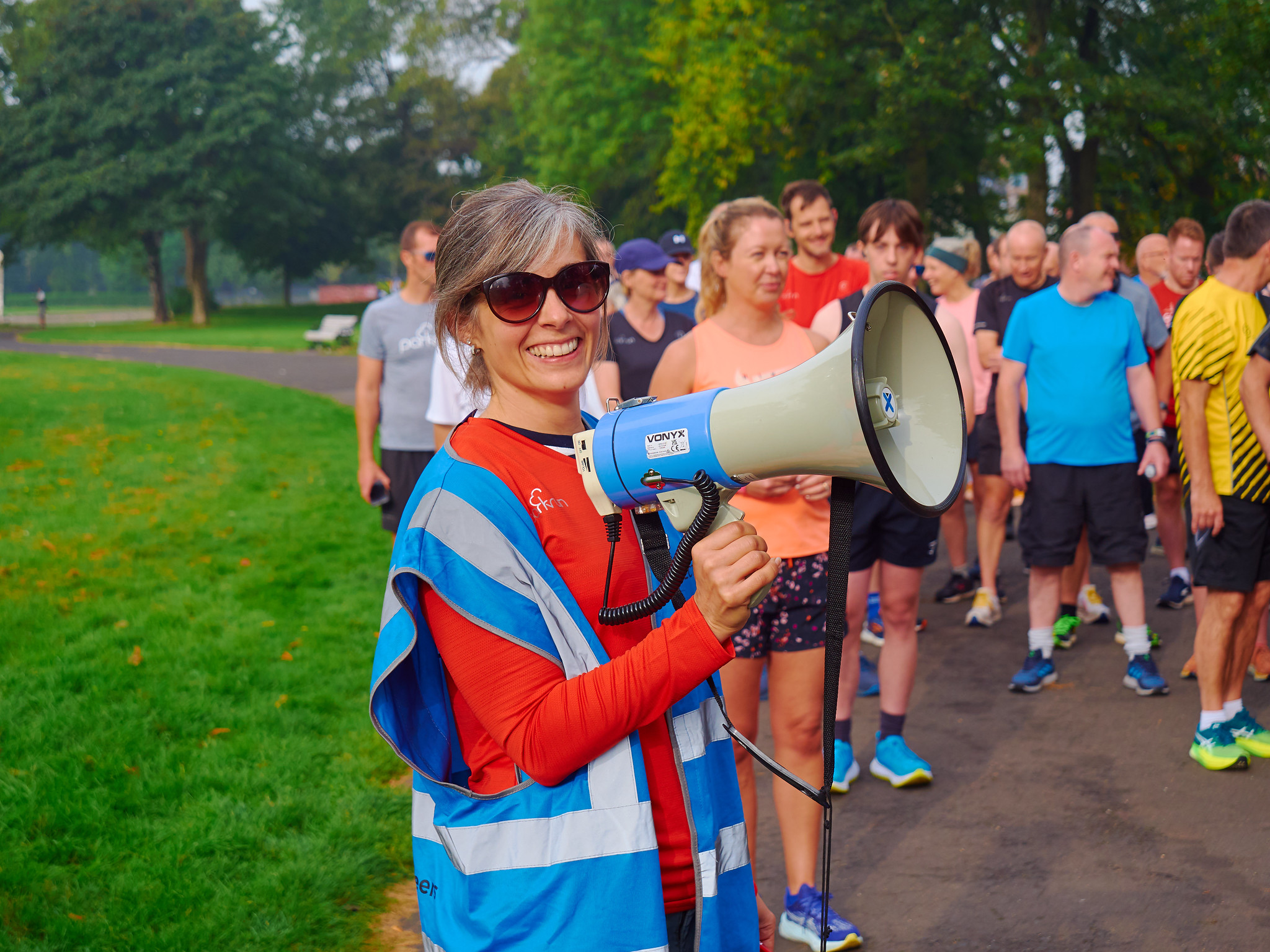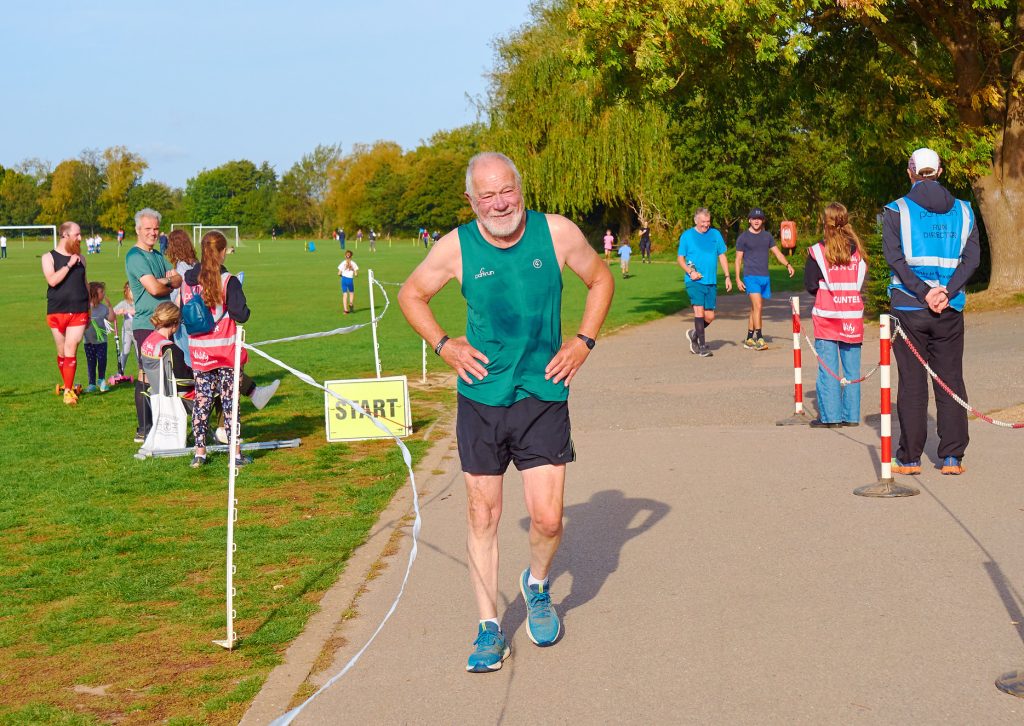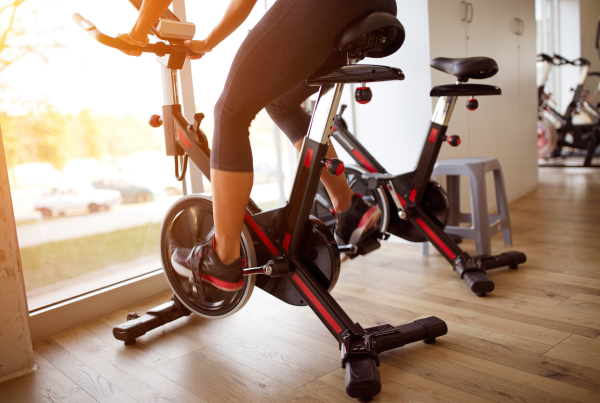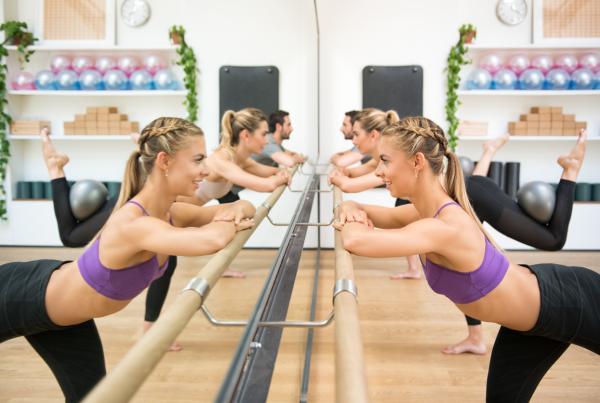As parkrun celebrates its 20th anniversary, new aims to integrate it more deeply into healthcare and the physical activity sector are on the horizon, so more people can reap the rewards of this huge public health initiative, says Hussain Al-Zubaidi.
parkrun is a free weekly 5km walk, jog or run in public open spaces led by volunteers on Saturday mornings at 9am. parkrun welcomes everyone, no matter your level of fitness, and it caters to those with additional needs such as accompanying blind runners and, where possible, having sign language briefings. It can be regarded by the physical activity sector as a unique tool to engage their clients and communities in regular exercise and prioritise their health and wellbeing. parkrun’s role in the physical activity sector is set to grow.
Its own growth, with now over nine million parkrunners internationally in 22 countries, is testament to the benefits it brings individuals and communities. These benefits include promoting physical activity, fostering social connections and a culture of inclusivity and belonging, and supporting behaviour change.
Humble beginnings
On 2 October 2004, the parkrun movement was born, founded by Paul Sinton-Hewitt. At Bushy Park in Teddington, UK, 13 people gathered to run 5km. The movement expanded and now parkrun is in over 2,000 locations worldwide. This is all fuelled by thousands of volunteers, with over 390,000 instances of volunteering since July 2021 by 121,723 different people1.
In 2013, junior parkrun was launched for children aged four to 14; the children cover 2km on Sunday mornings and there are now over 200 events, thus sowing the seed of the importance of community physical activity early. Guardians are welcome to accompany their children and children are also welcome to accompany their guardians at the Saturday events!
Despite its whirlwind of growth, the starting principles remain unwavering: weekly, free, for everyone, forever.
Why attend?
For our mental health
In 2018, parkrun conducted a health and wellbeing survey that garnered over 60,000 responses. Among these, 79% indicated that participating in parkrun boosted their happiness, with volunteers experiencing the most significant increase in their happiness levels. Additionally, 91% of parkrun survey participants expressed a feeling of personal accomplishment through their involvement with parkrun (survey details were published in the first issue of parkrun magazine on page 44).
Morris and Scott conducted a qualitative exploration into how parkrun was perceived by individuals with current or prior mental health challenges who had engaged as either a walker, runner or volunteer.2 All participants (N = 20) reported improvements in their mental health. They associated parkrun with reduced social isolation, depression, anxiety and stress, as well as increased confidence. They also felt it gave them space to think. The study identified three themes related to these benefits: ‘a sense of achievement’; ‘connecting with others’; and ‘it’s for everyone’.
Physical activity providers can use parkrun as a motivational tool for their clients
For our physical health
Stevinson and Hickson surveyed 7,308 park runners3. They observed notable enhancements in fitness among participants, with an average improvement of 10% from their first parkrun to their fastest within the survey period. The effect was most pronounced (15.8%) for those who did not identify as regular runners on registration. There was also a moderately strong correlation between the frequency of participation and the improvement in 5km performance. Additionally, survey respondents perceived that parkrun significantly contributed to their improved fitness levels.
How to utilise parkrun to support your clients and community
Accessibility and inclusivity
One of the key strengths of parkrun is its accessibility. parkrun events are open to people of all ages and abilities, from seasoned runners to first-timers and walkers. Buggies, children and dogs are also all welcome. parkrun’s role in the physical activity sector can be seen in physical activity providers who can leverage parkrun as a low-barrier entry point for their clients, encouraging them to participate in a supportive and non-intimidating environment.
Social connection and community engagement
parkrun has been successful in motivating people to attend for the community benefits beyond those gained from individual physical activity alone. Social factors are crucial in driving ongoing parkrun participation, including strong social support, social inclusivity, opportunities for socialising, sense of community and a positive atmosphere4.
Social community engagement was found by the 75-year longitudinal study of adult development at Harvard University as one of the most significant factors in better mental and physical health, along with close personal relationships. Participating in parkrun allows individuals to connect with like-minded people, build friendships and develop a sense of belonging within their local community.
Physical activity providers can capitalise on this aspect by encouraging their clients to join parkrun as a way to expand their social circles and strengthen their support networks. By organising group outings to parkrun events or facilitating post-run gatherings such as coffee at a local café, physical activity providers can create opportunities for clients to bond with each other and develop lasting relationships centred on health and fitness.
Motivation and behaviour change
Consistency is key to achieving long-term health and fitness goals, and parkrun provides the perfect platform for individuals to stay motivated and accountable. The weekly nature of parkrun events encourages participants to establish a regular exercise routine and set achievable targets for improvement. Physical activity providers can use parkrun as a motivational tool for their clients, setting goals related to participation frequency, personal best times or milestones such as completing a certain number of runs. By tracking progress and celebrating achievements, physical activity providers can help clients stay committed to their fitness journey and experience the positive benefits of regular exercise.
Education and support
In addition to promoting participation in parkrun events, physical activity providers can offer valuable education and support to enhance the experience for their clients. This may include providing training advice, injury prevention tips, and guidance on nutrition and hydration. By equipping clients with the knowledge and resources they need to prepare for parkrun, physical activity providers can help them perform at their best and minimise the risk of setbacks.
Take-home message
By embracing initiatives like parkrun and integrating them into their programmes and services, the physical activity sector can play a significant role in encouraging healthier lifestyles and creating healthier, happier and more vibrant communities for generations to come.
parkrun provides the perfect platform for individuals to stay motivated and accountable
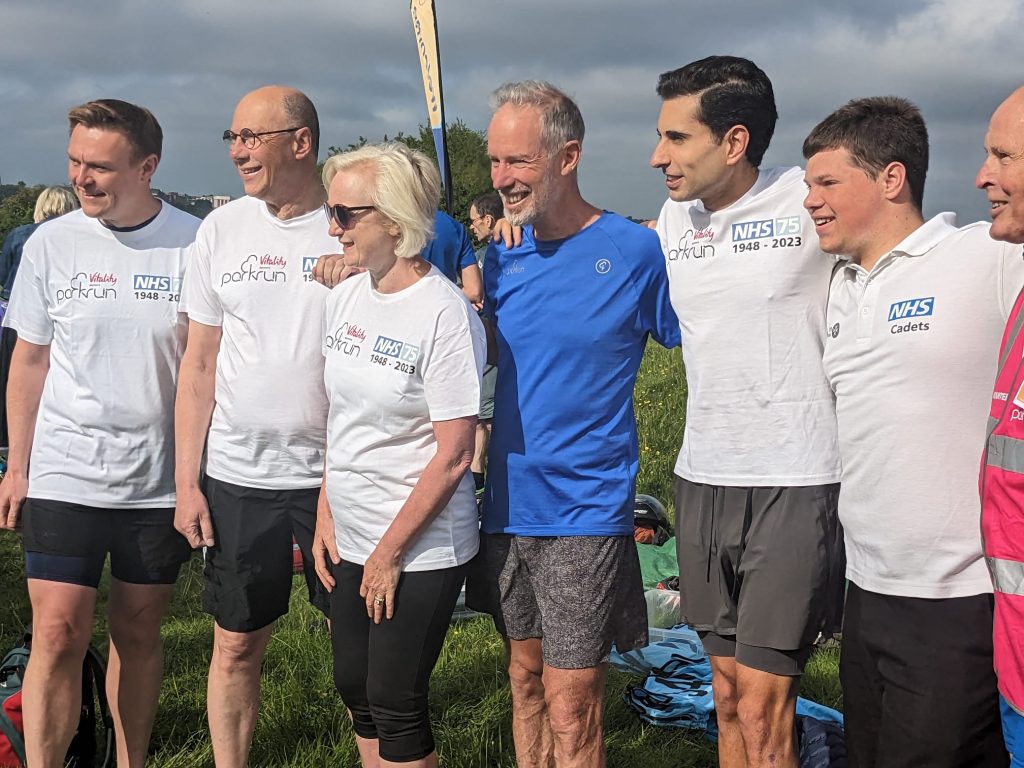
Dr Hussain Al-Zubaidi and NHS leaders at parkrun
Case study: Katriona’s journey: How parkrun sparked a positive behaviour change
Katriona is 34 years old and her weekdays are filled with work commitments. At the weekend, she spends most of her free time indoors playing video games, talking to friends online and streaming TV. She feels sluggish and relates this to being very busy in the week. She feels demotivated to change her habits and previous attempts to join the gym or follow a workout plan have not been successful.
One Monday at work, her colleague Xia mentions a few of them are going to the local parkrun and for a coffee afterwards and invites Katriona along. She declines, saying it’s not for her and she has never run before. Over the week, Xia chips away at Katriona, sharing her journey from largely sedentary to becoming a regular runner. She reassures Katriona she does not need to run but can walk, jog or volunteer, so she can see what it’s all about.
Katriona’s experience
Most participants attend their first parkrun because of encouragement from their social network4 and Katriona eventually agrees to give it a try. Upon arriving at the park, Katriona feels a mixture of excitement and nervousness. She is reassured by the welcoming atmosphere and uplifting briefing at the start.
Katriona starts with a light jog and has walking breaks throughout. Fellow parkrunners and volunteers give her a thumbs up, which keeps her going. She feels good to be out in nature and meet others in person, including her work colleagues outside the work environment, and they all enjoy a coffee in the park café after.
Behaviour change
After her parkrun, Katriona feels a huge sense of achievement and reflects on the community support, which was such a positive experience. She feels empowered to make a change to improve her health and makes parkrun a regular part of her weekly routine. She sets herself a goal to each week increase her running intervals by a minute, with the aim of doing the whole 5km non-stop. Knowing she has a supportive community behind her motivates Katriona to lace up her running shoes every Saturday morning, rain or shine.
Impact on health and wellbeing
Over time, Katriona notices significant improvements in her physical and mental health. Regular participation in parkrun helps her to increase her cardiovascular fitness and boost her mood. She also becomes interested in eating a more nutritious diet as she wants to continue to better her health. Instead of feeling sluggish, she is now more energised at the weekends and this puts her in good stead to manage work stressors during the week. She and Xia form a strong friendship as they meet regularly at parkrun and having a friend to go with further improves her motivation.
Sustainability
Two years later, Katriona remains an active member of the parkrun community. She has celebrated her 50 runs and 10 volunteer milestones. She even persuaded her mother to come along to an event and this is a work in progress. parkrun has helped Katriona to embrace lifestyle measures for better health, as well as being a source of joy, inspiration and personal growth.

Dr Hussain Al-Zubaidi
DR HUSSAIN AL-ZUBAIDI (@irondoctorhaz) is a lifestyle TV doctor, longevity coach, and long-distance triathlete with Team GB age group. With a focus on movement, community, and nutrition, he holds key roles at the RCGP, parkrun, Swim England, run talk run, Think Active and the Leamington PCN. Dr Al-Zubaidi leads a ground breaking NHS lifestyle clinic, inspiring patients to adopt healthier habits and community engagement. As a respected educator, he delivers talks to diverse audiences, and his media presence includes over 80 appearances on major channels like Channel 4, BBC, and ITV
Want to know more about how parkrun has inspired so many. Listen here to the FitPro webcast on how parkrun inspired a nation.
References
- parkrun website: https://volunteer.parkrun.com/news/november-2021, accessed 25 April 2024.
- Morris P & Scott H (2019), Not just a run in the park: A qualitative exploration of parkrun and mental health, Advances in Mental Health, 17(2): 110-123. DOI: 10.1080/18387357.2018.1509011
- Stevinson C & Hickson M (2014), Exploring the public health potential of a mass community participation event, Journal of Public Health, 36(2): 268-274. DOI:10.1093/pubmed/fdt082
- Sharman MJ, Nash M, Cleland V (2019), Health and broader community benefit of parkrun-An exploratory qualitative study, Health Promot J Austr., 30(2): 163-171. DOI: 10.1002/hpja.182.


